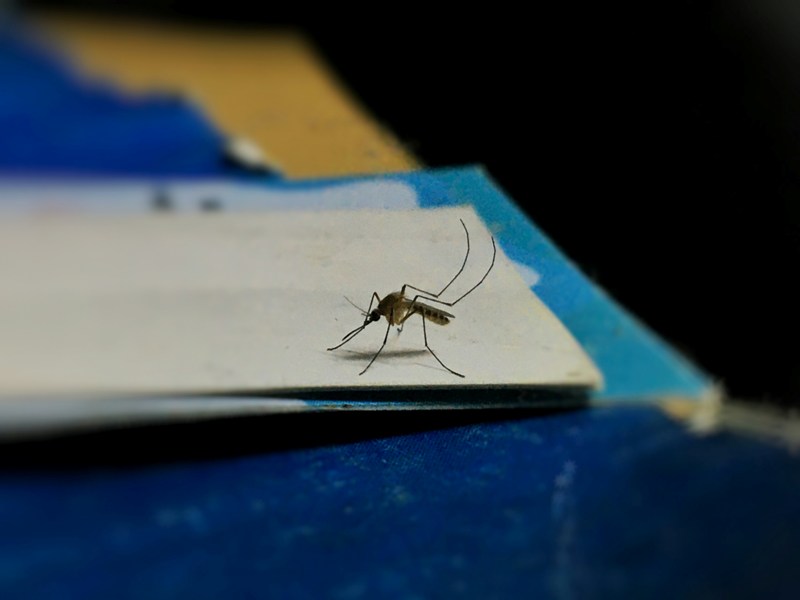 Malaria
Malaria
The World Health Organization (WHO) on Sunday certified Egypt as malaria-free, marking a significant public health milestone for a country with more than 100 million inhabitants.
The achievement follows a nearly 100-year effort by the Egyptian government and people to end a disease that has been present in the country since ancient times.
“Malaria is as old as Egyptian civilization itself, but the disease that plagued pharaohs now belongs to its history and not its future,” said Dr Tedros Adhanom Ghebreyesus, WHO Director-General. “This certification of Egypt as malaria-free is truly historic, and a testament to the commitment of the people and government of Egypt to rid themselves of this ancient scourge. I congratulate Egypt on this achievement, which is an inspiration to other countries in the region, and shows what’s possible with the right resources and the right tools.”
Egypt is the third country to be awarded a malaria-free certification in the WHO Eastern Mediterranean Region following the United Arab Emirates and Morocco, and the first since 2010.
Globally, a total of 44 countries and 1 territory have reached this milestone.
“Receiving the malaria elimination certificate today is not the end of the journey but the beginning of a new phase. We must now work tirelessly and vigilantly to sustain our achievement through maintaining the highest standards for surveillance, diagnosis and treatment, integrated vector management and sustaining our effective and rapid response to imported cases. Our continued multisectoral efforts will be critical to preserving Egypt's malaria-free status,” said H.E. Dr Khaled Abdel Ghaffar, Deputy Prime Minister of Egypt.
"I reaffirm that we will continue with determination and strong will to safeguard the health of all people in Egypt under the wise leadership's guidance and proceed with enhancing our healthcare system, this will remain a cornerstone in protecting the lives of all people living in and visiting Egypt.”
Certification of malaria elimination is granted by WHO when a country has proven, beyond reasonable doubt, that the chain of indigenous malaria transmission by Anopheles mosquitoes has been interrupted nationwide for at least the previous three consecutive years. A country must also demonstrate the capacity to prevent the re-establishment of transmission.
Egypt’s journey to elimination
Malaria has been traced as far back as 4000 B.C.E. in Egypt, with genetic evidence of the disease found in Tutankhamun and other ancient Egyptian mummies.
Early efforts to reduce human-mosquito contact in Egypt began in the 1920s when the country prohibited the cultivation of rice and agricultural crops near homes. With most of Egypt’s population living along the banks of the Nile River and malaria prevalence as high as 40%, the country designated malaria a notifiable disease in 1930 and later opened its first malaria control station focused on diagnosis, treatment and surveillance.
“Today, Egypt has proven that with vision, dedication, and unity we can overcome the greatest challenges. This success in eliminating malaria is not just a victory for public health but a sign of hope for the entire world, especially for other endemic countries in our region. This achievement is the result of sustained, robust surveillance investments in a strong, integrated health system, where community engagement and partnerships have enabled progress. Furthermore, collaboration and support to endemic countries, such as Sudan, remain a priority,” said Dr Hanan Balkhy, WHO Regional Director for the Eastern Mediterranean.
By 1942, malaria cases in Egypt had spiked to more than 3 million as a result of the Second World War population displacement, the disruption of medical supplies and services, and the invasion of Anopheles arabiensis, a highly efficient mosquito vector, among other factors. Egypt succeeded in controlling the malaria outbreak through the establishment of 16 treatment divisions and the recruitment of more than 4000 health workers.
The construction of the Aswan Dam, completed in 1969, created a new malaria risk for the country, as standing water produced breeding grounds for mosquitoes. Egypt, in collaboration with Sudan, launched a rigorous vector control and public health surveillance project to rapidly detect and respond to malaria outbreaks.
By 2001, malaria was firmly under control and the Ministry of Health and Population set its sights on preventing the re-establishment of local malaria transmission.
Egypt rapidly contained a small outbreak of malaria cases in the Aswan Governorate in 2014 through early case identification, prompt treatment, vector control and public education.
Malaria diagnosis and treatment are provided free-of-charge to the entire population in Egypt regardless of legal status, and health professionals are trained nationwide to detect and screen for malaria cases including at borders.
Egypt’s strong cross-border partnership with neighbouring countries, including Sudan, has been instrumental for preventing the re-establishment of local malaria transmission, paving the way for the country to be officially certified as malaria-free.
Support Our Journalism
We cannot do without you.. your contribution supports unbiased journalism
IBNS is not driven by any ism- not wokeism, not racism, not skewed secularism, not hyper right-wing or left liberal ideals, nor by any hardline religious beliefs or hyper nationalism. We want to serve you good old objective news, as they are. We do not judge or preach. We let people decide for themselves. We only try to present factual and well-sourced news.






